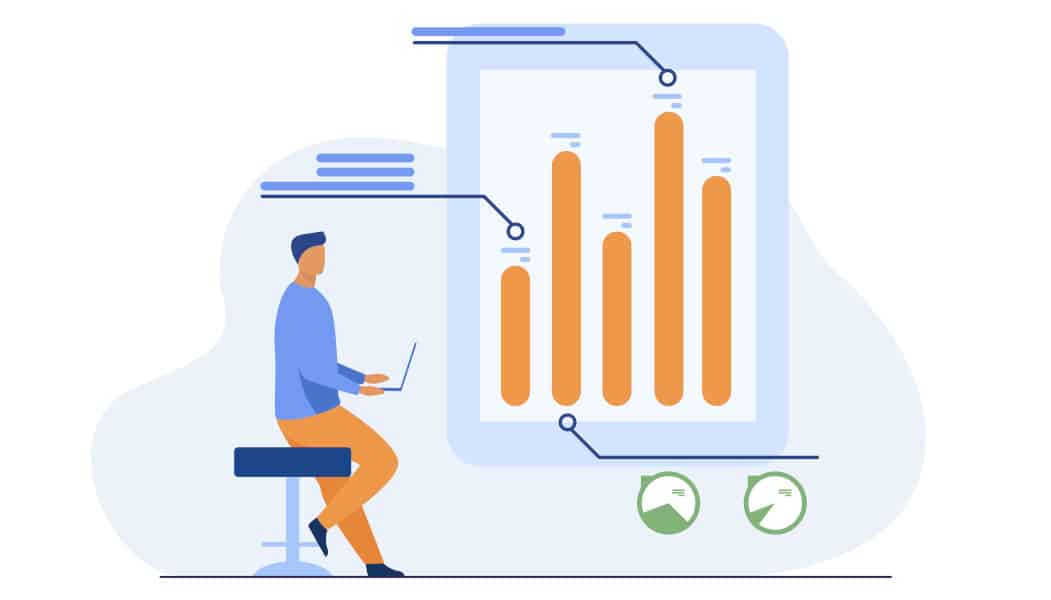If the Data Manager and the Data Product Manager are two essential data professions, they have two very distinct roles. Discover all the differences between these two jobs!
With the rise of Big Data, many professions have emerged. For good reason, a wide variety of skills are needed to collect data, transform, store it, analyze it and manage it.
Within the same organization, the Data Analyst, the Data Scientist and the Data Engineer all play a different role to achieve a common goal: to exploit data for the benefit of the company.
The Data professions are always more numerous and have titles that are sometimes so similar that it is not necessarily easy to distinguish them. Among the roles often mistakenly confused are the Data Manager and the Data Product Manager.
What is a Data Manager?
Many organizations today use Big Data to gain insights into consumer behavior and make better data-driven decisions. This is why the role of a Data Manager has become essential in a wide variety of industries such as finance, health or education.
This expert has many responsibilities. They are responsible for managing files, providing access to the data to different employees, maintaining databases, and simplifying collection and analysis procedures to ensure quick access to metrics.
The Data Manager develops and manages the data systems of a company, in order to meet the needs of the organization or a research team. Its Data Management mission notably involves accessing, validating and storing the data required for research and day-to-day operations.
They must also generate and review documentation for all changes to the databases, and detect inconsistencies and anomalies in the data that could distort the analyses.
In addition, this expert makes recommendations for hardware, software and solutions . storage of data. They communicate with managers and employees on data-related needs.
Since the adoption of the General Data Protection Regulation (GDPR) in the European Union, the Data Manager is also responsible for ensuring the compliance of their organization, making their role even more essential for each company.

To carry out his mission, the Data Manager uses various tools. Data Management platforms such as Amodee, Permutive, Lotame, Nielsen or Oracle BlueKai provide companies with the ability to exploit Big Data from multiple sources in real time.
They provide an overview of customers and provide valuable insight into their behavior. These solutions help the Data Manager to work efficiently, and help organizations collect, sort and store information in the most useful way for managers and sales forces.
Using these platforms, companies become able to personalize the customer experience, increase engagement, identify the causes of marketing failures in real time, build customer loyalty and generate revenue. related to data-driven marketing.
The best Data Management platforms automate and organize the data lifecycle seamlessly. By optimizing the use of hardware, costs can be reduced and security enhanced. These solutions act as software layers for controlling the underlying storage resources.
What is a Data Product Manager?

In the early 2000s, many companies in the digital domain faced a problem. Their teams collected large volumes of data, and used it to develop their products, target their marketing campaigns and make better decisions.
However, no one was in charge of developing the data analysis solutions or ensuring compliance with applicable data mining laws.
The Data Product Manager role arose to find ways to harness the flow of data throughout a product’s lifecycle and use it to create and perfect new products.
They determine what data is available, where it comes from, who needs the data and why it is here. Their mission is also to identify how to make this data more accessible, to ensure compliance and to make the data useful to more members of the company more quickly.
Like the Data Manager, the Data Product Manager is responsible for Data Management and the process of collecting, organizing, storing and sharing data within the organization. The main difference is that it seeks to exploit this data for the development of Data Products.
So what is a “Data Product”? This term encompasses a wide variety of different elements. It can also be a table of board or a report, an A/B testing platform or a complete platform dedicated to data.
Whatever its nature, this product must allow better access to data, accelerate the return on investment of data, allow teams to save time, and provide more precise insights. This product must also be reliable and observable, scalable, usable, compliant and secure.
Conclusion
In summary, the Data Manager and the Data Product Manager are two key roles in the field of Data Science, but they have different responsibilities and objectives. The Data Manager is primarily responsible for managing and maintaining an organization’s databases, while the Data Product Manager ensures that data-driven products meet the needs of the business and its customers. If you are interested in one of these professions, it is important to understand the differences between these two roles to choose the one that is best for you.










